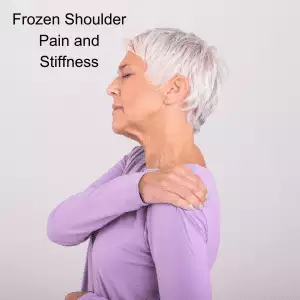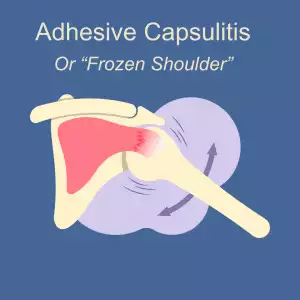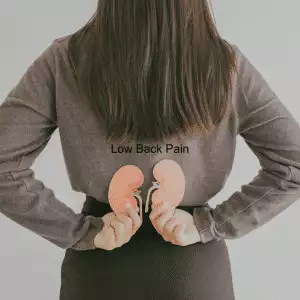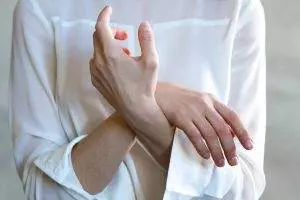-
 Art of Wellness Acupuncture & Traditional Chinese Medicine (TCM)11704 Wilshire Blvd, Suite 295, Los Angeles, CA, 90025
Art of Wellness Acupuncture & Traditional Chinese Medicine (TCM)11704 Wilshire Blvd, Suite 295, Los Angeles, CA, 90025
myartofwellness@gmail.com310-451-5522 Office Hours
MonClosedTue7:30 am --4 pmWed7:30 am --4 pmThu7:30 am -- 4 pmFri7:30 am -- 4 pmSat7:30 am -- 4 pmSunClosedOur office opens from Tuesdays to Saturdays 7:30 am to 4 pm, will be closed on Memorial day, Independent day, Labor day, Thanksgiving day, Christmas and New year.
-
Recent Posts
- Acupuncture for Sciatica Pain
- Can Acupuncture Help With Bladder Control?
- How to Treat De Quervain’s Tenosynovitis With Acupuncture and TCM
- Chinese New Year 2026: Year of the Horse
- Acupuncture and TCM Treatment for Perimenopause Symptoms
- How to Treat Insulin Resistance With Acupuncture and TCM
- How to Treat Metabolic Syndrome With Acupuncture and TCM
- How to Treat Syncope With Acupuncture and TCM
- How to Treat Thoracic Outlet Syndrome With Acupuncture and TCM
- How to Treat Dupuytren’s Contracture With Acupuncture and TCM
- How to Treat Nutcracker Syndrome With Acupuncture and TCM
- How to Treat Rosacea With Acupuncture and TCM
- How to Treat Perioral Dermatitis With Acupuncture and TCM
- Lymphatic Drainage With Acupuncture and TCM
- How to Treat Turf Toe With Acupuncture
- How to Treat Nerve Pain With Acupuncture and TCM
- Sign up to receive news and updates and get my free report:“The Top 10 Reasons to Try Acupuncture”

February 2026 M T W T F S S 1 2 3 4 5 6 7 8 9 10 11 12 13 14 15 16 17 18 19 20 21 22 23 24 25 26 27 28
diabetes
How to Treat Insulin Resistance With Acupuncture and TCM
By Qineng Tan, L.Ac., Ph.D. and Xiaomei Cai, L.Ac., Ph.D.

Hungry and tired all the time? Gaining weight even though you’re doing all the right things? These may be signs of insulin resistance. Acupuncture and TCM offer alternative treatment to help improve insulin sensitivity and support weight loss.
What Is Insulin Resistance?
Insulin resistance is a condition where your body’s cells stop responding well to insulin, leading to elevated blood sugar levels and a cascade of metabolic stress. Left unchecked, insulin resistance can lead to prediabetes, type 2 diabetes, cardiovascular disease, and trouble managing a healthy weight.
Insulin is a hormone produced by your pancreas that helps glucose (sugar) enter cells for energy. When your body becomes resistant to insulin, more insulin is needed to keep blood sugar in a normal range. Over time, the pancreas struggles to keep up, and blood glucose levels rise.
Insulin resistance often shows up with other health problems, such as high triglycerides, low “good” HDL cholesterol, elevated fasting glucose, and sometimes high blood pressure. There may not be obvious symptoms at first, which is why many people have insulin resistance for years before they are ultimately diagnosed.
Insulin resistance is often a significant part of PCOS, which causes irregular periods and fertility issues, along with increasing the risk of diabetes. Acupuncture and TCM can be an effective way to treat PCOS and insulin resistance.
Top 10 Signs of Insulin Resistance

How do I know if I’m insulin resistant? Many people will not notice any signs of insulin resistance and will find out about it until they have a fasting blood glucose test or tests that show high cholesterol levels.
However, there are symptoms that may be indicators of insulin resistance:
- Increased hunger, especially after meals
- Frequent energy crashes or feeling tired even after rest
- Frequent urination
- Difficulty losing weight or belly fat accumulation
- Darkened skin patches (acanthosis nigricans), especially around the neck or underarms
- Elevated fasting glucose or hemoglobin A1c (if tested)
- High triglycerides, low HDL cholesterol
- Possible mild elevated blood pressure
- Fatigue
- Dizziness, headaches
Can Acupuncture Help Insulin Resistance?
In Traditional Chinese Medicine, insulin resistance is seen not just as issues with sugar, but as a broader imbalance among Qi (vital energy), Blood, Yin, and Yang, often involving the Spleen, Liver, and Kidneys.
Spleen Qi Deficiency – the Spleen is responsible for transforming food into energy. Weak Spleen Qi means sluggish digestion, poor nutrient absorption, and accumulation of Dampness.
Phlegm-Damp Obstruction – in TCM, phlegm/damp corresponds loosely to fat accumulation, insulin-resistant fat tissue, or lipid disturbances.
Liver Qi Stagnation – can lead to emotional stress, which worsens metabolism, contributes to cravings, and disrupts hormonal balance.
Kidney Yin or Yang Deficiency – either or both depending on the person’s constitution and lifestyle. This can impair energy reserves, slow recovery, and reduce resilience.
TCM treatment is thus about addressing both root (constitutional) imbalances and branch (symptomatic) relief: strengthening digestion (Spleen), moving liver Qi, clearing dampness, nourishing the kidneys, and regulating blood sugar and energy.
Recent research has begun to show how acupuncture can directly influence the mechanisms behind insulin resistance, not just the symptoms.
A comprehensive review of both clinical and laboratory studies found that acupuncture helped improve common measures of insulin sensitivity, such as fasting blood glucose, insulin levels, and the HOMA-IR index. Patients who received acupuncture also saw improvements in cholesterol and triglyceride levels, reductions in abdominal fat, and better liver function in cases of non-alcoholic fatty liver disease.

Chinese herbal formulas are tailored to each pattern—some patients may need herbs to strengthen the Spleen and resolve dampness; others might need formulas to soothe liver Qi, or nourish Yin or Yang depending on their pattern.
Diet in TCM is also crucial. Reducing sugar, refined carbohydrates, avoiding damp-producing foods, and choosing foods that support spleen function (warm, simple, easy to digest) will help, and your practitioner can give you specific dietary advice.
Lifestyle practices such as gentle exercise, stress reduction (meditation, breathing work), good sleep hygiene, and regular rest help reinforce the effects of acupuncture and herbs.
Acupuncture Near Me for Insulin Resistance in Los Angeles
If you suspect you’re dealing with insulin resistance, or if you’ve been diagnosed with prediabetes, type 2 diabetes, or PCOS, acupuncture and TCM can be helpful. At Art of Wellness Acupuncture in West Los Angeles, we tailor our treatments to your unique situation, addressing the root causes and supporting sustainable metabolic health.
Don’t wait until medication is your only option. Contact us today to schedule a consultation and see how acupuncture and TCM may support your journey toward improved insulin sensitivity, balanced hormones, and healthier weight.
*This article is for education from the perspective of Traditional Chinese Medicine only. The education provided by this article is not approved by FDA to diagnose, prevent, treat and cure human diseases. It should not stop you from consulting with your physician for your medical conditions. Traditional Chinese Medicine is based on Qi, which is an invisible force that usually cannot be observed by modern science. Because science focuses on testing ideas about the natural world with evidence obtained through observation, these aspects of acupuncture can’t be studied by science. Therefore acupuncture and Chinese herbs are often not supported by double-blind, randomized trials, and they are considered alternative medicine therapies in the United States.
How To Treat Frozen Shoulder With Acupuncture and TCM
By Qineng Tan, L.Ac., Ph.D. and Xiaomei Cai, L.Ac., Ph.D.

Can’t lift arm up? Front shoulder pain? Shoulders hurt when sleeping? Shoulder pain that doesn’t go away can be due to “frozen shoulder” and adhesive capsulitis. Acupuncture and TCM offer treatment for adhesive capsulitis frozen shoulder.
What Is Frozen Shoulder? Understanding Shoulder Pain and Adhesive Capsulitis
Frozen shoulder, medically known as adhesive capsulitis, is a painful condition that limits the range of motion in the shoulder. Over time, the shoulder joint can become stiff and difficult to move, leading to a significant loss of mobility.
Frozen shoulder typically progresses through three stages:
- Freezing – pain becomes gradually more intense, and range of motion decreases, sometimes until the arm is immobile – can last 6 weeks up to 9 months
- Frozen – pain may lessen, but the shoulder joint is still stiff and very difficult to move – can last 4-6 months
- Thawing – movement and strength is slowly regained – typically lasts anywhere between 6 months to 2 years
While frozen shoulder may be considered resolved when the pain has improved and basic functionality returns, many people continue to feel some stiffness and pain for many years.
What Causes Frozen Shoulder?
The shoulder is a ball-and-socket joint made up of three bones:
- The humerus (upper arm bone)
- The scapula (shoulder blade)
- The clavicle (collarbone)
The ball of the upper arm bone fits into a shallow socket in the shoulder blade, and this joint is surrounded by a thick capsule of connective tissue called the shoulder capsule. To help the shoulder move smoothly, synovial fluid lubricates the joint.
In cases of frozen shoulder, this capsule thickens and becomes stiff, with the development of adhesions or scar tissue, reducing the fluid in the joint. This usually leads to significant pain and often severely limited movement in the shoulder.
What Are the Risk Factors for Adhesive Capsulitis of the Shoulder?

Frozen shoulder primarily affects adults, especially those between 40 and 60 years old, and it occurs more often in women than men. It is particularly common in women experiencing perimenopause and menopause, likely due to hormonal changes that can contribute to joint and connective tissue issues.
Certain medical conditions increase the likelihood of developing frozen shoulder. For example,
people with diabetes are at a higher risk for frozen shoulder, and they often experience more severe stiffness and longer recovery times.
Both hypothyroidism and hyperthyroidism are associated with an increased risk of frozen shoulder.
Immobilization of the shoulder following surgery or injury can also trigger the onset of frozen shoulder, especially if movement is restricted for long periods.
Many people wake up with a sore shoulder from sleeping in a way that restricts movement. Shoulder discomfort or front shoulder pain can happen due to sleeping positions that put pressure on the sensitive shoulder joint.
Frozen shoulder can also cause discomfort on one side, leading to reports of sore right shoulder or ache in left shoulder depending on which shoulder is affected.
Treatment for Frozen Shoulder/Adhesive Capsulitis
A doctor will typically diagnose frozen shoulder after an examination to determine passive range of motion and active range of motion in your shoulder. They may choose to order X-rays to rule out other problems.
In most cases, using hot and cold therapy with compresses and icing may be recommended, as well as pain medications/anti-inflammatories like Ibuprofen. If pain continues to be severe, a physician may offer steroid injections (corticosteroids).
Patients may be referred for physical therapy or massage to help with stretching and improving range of motion.
If pain and immobility persists past a year, surgery may be recommended. A “capsular release” procedure involves making small incisions in the tissues of the shoulder capsule. Manipulation and massage, while a person is anesthetized, can also help loosen up the tissues to allow for more mobility.
Acupuncture treatment can help relieve pain and improve mobility for frozen shoulder treatment without negative side effects that can come from the ongoing use of OTC pain medication and cortisone shots/corticosteroids, so it may be considered as an adjunct or alternative treatment for adhesive capsulitis.
Can Acupuncture Help Frozen Shoulder?
The TCM Chinese term for “frozen shoulder” translates into English as “shoulder at the age of 50 years.” Clearly, people in their middle age have been experiencing this pain and limitation in the shoulder joint for centuries. TCM has developed ways of helping to improve this condition.

According to TCM theory, frozen shoulder may fall under the category of “Bi Syndromes.” “Bi” refers to an obstruction of some sort, and Bi Syndromes typically cause pain and stiffness in a part of the body, due to a blockage of the flow of Qi (life force energy).
In TCM, “wind,” “damp,” and “cold” are considered pathogenic forces that can settle in an area of the body and cause blood and Qi to stagnate. This can cause stiffness, lack of movements, tenderness, swelling, and pain in that area. Most types of arthritis, for example, are considered Bi Syndromes.
Conventional medicine tends to treat each person presenting with a condition with the same types of treatments and waits to see if they work. In TCM, there is an understanding that different people can have the same symptoms, and yet have different underlying problems that are causing pain and other symptoms.
Different people may experience pain and stiffness due to different factors. One person may have a stiff, sore shoulder due to an invasion of cold or damp, while another person may show signs of heat or wind. In other words, the very specific presentation of symptoms can help the acupuncture practitioner to determine the underlying causes of the condition and treat them accordingly, with acupuncture and herbal remedies.
The stimulation of specific acupoints can help bring more blood flow to the shoulder joint, so that more nourishment can help reduce inflammation. Electroacupuncture, in particular, can help activate the release of endorphins that reduce pain.
A review of 13 controlled studies of the usage of acupuncture treatment for frozen shoulder determined that it is a good modality for both reducing pain and restoring proper shoulder function.
A randomized, single blind controlled trial looked at 35 patients with frozen shoulder symptoms. Some of the patients were assigned to a group that would engage in physical therapy sessions twice per week, practice exercises at home daily, and not use any pain medications, except in “emergency” situations.
The other group also engaged in physical therapy and exercise, plus they also were given acupuncture treatment twice per week, with functional movement exercises being performed during the acupuncture session.
After six weeks of treatment, patients who had only had PT showed an average 39.8% improvement, while the PT plus acupuncture patients showed an average 76.4% improvement.
One recorded case study detailed that, after 24 acupuncture treatments, a patient regained full range of motion in their shoulder and reported that pain was entirely gone.
Acupuncture for Frozen Shoulder Near Me in West L.A. and Santa Monica
At Art of Wellness Acupuncture in West Los Angeles, we have over 35 years of experience helping patients find relief from joint pain of all kinds. Dr. Tan is a specialist in treating orthopedic pain. We successfully treat joint pain conditions like frozen shoulder, osteoarthritis of the knee, tennis elbow, bone spurs, bursitis/hip pain, gout, and more. If you are suffering from a lack of mobility and pain in shoulder, please consider visiting our acupuncture office in Los Angeles for a consultation.
*This article is for education from the perspective of Traditional Chinese Medicine only. The education provided by this article is not approved by FDA to diagnose, prevent, treat and cure human diseases. It should not stop you from consulting with your physician for your medical conditions. Traditional Chinese Medicine is based on Qi, which is an invisible force that usually cannot be observed by modern science. Because science focuses on testing ideas about the natural world with evidence obtained through observation, these aspects of acupuncture can’t be studied by science. Therefore acupuncture and Chinese herbs are often not supported by double-blind, randomized trials, and they are considered alternative medicine therapies in the United States.
How to Treat Chronic Kidney Disease (CKD) With Acupuncture and TCM
By Qineng Tan, L.Ac., Ph.D. and Xiaomei Cai, L.Ac., Ph.D.

Foamy pee, or bubbles in urine? Urinary frequency, or maybe peeing less than usual? Swollen hands and feet? Low back pain? Fatigue? These can be symptoms of chronic kidney disease, or CKD. Acupuncture and TCM can help relieve CKD symptoms and improve kidney health.
Chronic kidney disease (CKD) is a long-term condition characterized by a gradual loss of kidney function over time.
The kidneys play a vital role in filtering waste and excess fluids from the blood, which are then excreted through urine. When the kidneys are damaged, they cannot perform these functions efficiently, leading to a buildup of waste and fluid in the body.
Common symptoms of CKD include foamy urine, foamy pee, bubbles in urine, peeing more or less than usual, fatigue, edema, and swollen hands and feet. Recognizing these symptoms early is crucial for managing and slowing the progression of CKD.
There are different stages and types of CKD, each with varying degrees of kidney damage and associated symptoms. Early stages may present with mild symptoms such as changes in urination patterns, such as foamy urine or peeing more or less than usual.
As CKD progresses, individuals may experience more severe symptoms, including fatigue, swelling in the hands and feet (edema), and even high blood pressure. CKD can be caused by various underlying conditions, including diabetes, hypertension, and glomerulonephritis.
Each type of CKD has its unique characteristics and requires specific management approaches to prevent further kidney damage.
Acupuncture and TCM offer an adjunct or alternative treatment for CKD that can help not only to relieve kidney disease symptoms, but address the root cause of kidney problems.
Types of Chronic Kidney Disease (CKD)

While all types of CKD are related to poor kidney function, different kinds of chronic kidney disease develop due to a variety of factors. Some of the most common causes of kidney disease include:
- Diabetic Kidney Disease, or Diabetic Nephropathy: This type of CKD is caused by damage to the kidneys due to diabetes. About half of all people with Type 2 diabetes also develop CKD. High blood sugar levels can harm the blood vessels in the kidneys, leading to reduced kidney function over time. High blood pressure, swelling of hands and feet, shortness of breath, and loss of appetite are potential symptoms of diabetic nephropathy. The combination of diabetes and CKD can lead to other complications, including retinopathy, gastroparesis, neuropathy, sleep disorders, sexual dysfunction, and cognitive decline.
- Glomerulonephritis: This is a group of diseases that cause inflammation and damage to the tiny capillaries called glomeruli; these are where waste is filtered out of the blood. This can be caused by infections, autoimmune diseases, or other underlying conditions. Symptoms of glomerulonephritis can include blood in urine, nausea, skin rash, joint pain, swollen face or swelling in legs, jaundice, and troubling breathing.
- Polycystic Kidney Disease (PKD): PKD is a genetic disorder that causes fluid-filled cysts to form in the kidneys. These cysts can enlarge the kidneys and reduce their function over time. PKD symptoms can include: pain in side or back pain, sense of fullness in the abdomen, headaches, and kidney stones.
- Interstitial Nephritis, or tubulointerstitial nephritis: This type of CKD involves inflammation and swelling around the tubules in the kidneys. It can be caused by infections, allergic reactions to medications, long-term overuse of pain medications (analgesic nephropathy), or autoimmune disease, such as Kawasaki disease. Symptoms of Interstitial Nephritis can include: fever, blood in pee, nausea and vomiting, drowsiness, and mental confusion.
- Chronic Pyelonephritis: This is a chronic inflammation of the kidney tissue, often due to repeated bacterial kidney infections, or UTIs. This condition most commonly presents in people, who have a structural abnormality that causes urinary obstructions that can lead to vesicoureteral reflux, when urine from the bladder backs up into the ureters and kidneys. Chronic kidney stones, or enlarged prostate can also cause pyelonephritis, as can urinary procedures like cystoscopic exam or catheterization. Painful, burning sensation when urinating, fever, bloody urine, fishy-smelling urine, and pain in the low back or groin pain can all be signs of chronic pyelonephritis.
Recognizing the symptoms and understanding the different types of CKD can help individuals seek treatment earlier and adopt lifestyle changes to help manage the disease effectively.
Acupuncture treatment and other TCM modalities, herbs and nutrition, can be very helpful for managing CKD and its symptoms.
Top 10 Chronic Kidney Disease (CKD) Symptoms
Many people are suffering from chronic kidney disease without being aware of it. The symptoms of CKD can vary widely, and often don’t show up until chronic kidney disease has progressed to more serious stages. Some of the most common symptoms of chronic kidney disease include:
- Foamy Urine or Bloody Urine: Presence of bubbles or foam in the urine, indicating excess protein. Some types of CKD may also cause there to be blood in urine. Fishy-smelling urine can also be a symptom of some types of kidney disease.
- Changes in Urination: Peeing more or less than usual, which can include frequent nighttime urination or reduced urination.
- Fatigue: Persistent tiredness and lack of energy due to the buildup of waste products in the body.
- Edema: Swelling in the hands, feet, ankles, or face caused by fluid retention.
- Shortness of Breath: Difficulty breathing due to fluid buildup in the lungs.
- High Blood Pressure: Hypertension that is difficult to control, which is associated with kidney damage.
- Nausea and Vomiting: Feeling sick to the stomach, which can be a result of toxin buildup in the blood.
- Loss of Appetite: Lack of desire to eat, which can often be accompanied by unwanted weight loss.
- Muscle Cramps: Painful muscle contractions, usually due to electrolyte imbalances.
- Itchy Skin: Persistent itching caused by the accumulation of waste products in the body.
Low back pain, groin pain, and joint pain call all be symptoms of certain kinds of CKD.
People with CKD are more likely to have develop gastroparesis, weak stomach contractions that cause acid reflux, or regurgitation.
These symptoms can vary in severity and may develop gradually as kidney function declines. Early detection and management of CKD are crucial to slow the progression of the disease and maintain kidney health.
Can Acupuncture Help Chronic Kidney Disease?

In TCM, the kidneys are considered the foundation of life, responsible for storing vital essence (known as “jing”) and governing water metabolism, growth, and reproduction. TCM practitioners diagnose CKD by carefully observing and evaluating symptoms, as well as checking a patient’s pulse and tongue to determine the specific imbalance affecting the kidneys.
Acupuncture involves inserting fine needles into specific points on the body to balance the flow of qi (life force energy) and promote healing. Studies have shown acupuncture can improve kidney function, reduce proteinuria (excess protein in urine), and alleviate symptoms like fatigue and edema in CKD patients.
Acupuncture is also beneficial for lowering blood pressure and managing side effects from conventional treatments like dialysis.
Chinese herbs are often used in individually tailored formulas to address the underlying imbalances contributing to CKD. Herbs like Rehmannia glutinosa and Astragalus membranaceus are a few specific herbs that have been found effective in improving kidney function and reducing inflammation. Herbal formulas are combined based on each patient’s specific condition and symptoms.
TCM dietary recommendations focus on foods that support kidney health and balance yin and yang energies. A diet rich in fruits, vegetables, grains, and legumes, while avoiding high-salt, high-sugar, and animal protein-rich foods, is suggested to alleviate symptoms and prevent further kidney damage,
Other TCM treatment for CKD might include moxibustion (burning a herb called mugwort near acupuncture points to stimulate circulation), cupping (creating suction on the skin to promote qi flow), which can help remove excess fluids and toxins from the kidneys, and gua sha (scraping the skin to stimulate circulation). These therapies can help improve kidney function, reduce inflammation, and relieve pain.
By addressing the root causes and symptoms of CKD through a combination of acupuncture, herbal medicine, dietary adjustments, and other therapies, TCM offers a comprehensive approach to managing chronic kidney disease and supporting overall kidney health.
Acupuncture Near Me for Chronic Kidney Disease in Los Angeles
The TCM view of kidney function allows experienced practitioners like Dr. Tan and Dr. Cai at Art of Wellness to help patients with chronic kidney disease to optimize their health while relieving symptoms. If you or someone you love is suffering from kidney disease, it can be helpful to add acupuncture and herbs as an adjunct treatment for CKD in addition to conventional medicine.
*This article is for education from the perspective of Traditional Chinese Medicine only. The education provided by this article is not approved by FDA to diagnose, prevent, treat and cure human diseases. It should not stop you from consulting with your physician for your medical conditions. Traditional Chinese Medicine is based on Qi, which is an invisible force that usually cannot be observed by modern science. Because science focuses on testing ideas about the natural world with evidence obtained through observation, these aspects of acupuncture can’t be studied by science. Therefore acupuncture and Chinese herbs are often not supported by double-blind, randomized trials, and they are considered alternative medicine therapies in the United States.
How to Treat Gastroparesis With Acupuncture and TCM
By Qineng Tan, L.Ac., Ph.D. and Xiaomei Cai, L.Ac. Ph.D.

Bloated stomach, indigestion? Acid reflux, regurgitating food? Abdominal pain or nausea? These can be signs of gastroparesis, also known as stomach paralysis. Acupuncture and TCM can help relieve gastroparesis symptoms.
What is gastroparesis? Gastric paralysis is a functional problem that occurs when the stomach muscles and the nerves that are connected to them aren’t activating normally. Weak stomach contractions lead to delayed emptying of the stomach into the small intestine.
Gastroparesis impacts your digestion, triggering uncomfortable symptoms, and limiting your ability to get proper nutrition and keep your blood sugar levels steady.
There are different types of gastroparesis.
- Diabetes-related gastroparesis – a side effect of diabetes
- Post-surgical gastroparesis – occurs after surgery, such as gallbladder or pancreas surgery, gastric bypass surgery, stomach surgery for ulcer, or hysterectomy
- Idiopathic gastroparesis – occurs without a clear explanation
Most people experience idiopathic gastroparesis, which means that doctors cannot necessarily identify what causes gastroparesis in many cases.
Some medications can delay stomach emptying, including narcotic pain medications like codeine, morphine, or oxycodone. Medications that work on nerve signals, such as those used to treat overactive bladder, can delay gastric emptying.
Scleroderma, an autoimmune condition that affects collagen production and smooth muscle tissues, can lead to gastroparesis. Parkinson’s disease, which affects nerve signals, can lead to delayed emptying of the stomach. Hypothyroidism can also affect nutrition and digestion, as can eating disorders, metabolic disorders, and/or chronic fatigue.
Acupuncture is a good modality for helping to relieve gastroparesis symptoms, because it works on the nervous system, to help restore the proper signaling to muscles.
Rumination Syndrome
Gastroparesis is sometimes confused with “rumination syndrome.” Rumination syndrome refers to the regular regurgitation of undigested food. People with this syndrome often regurgitate undigested food back up shortly after a meal. This condition is usually related to the functioning of muscles of the diaphragm and unconscious behaviors around chewing and swallowing.
Gastroparesis Symptoms

The most common signs of gastroparesis are bloating, pain, nausea, and feeling full quickly when you eat.
Other symptoms of gastroparesis include:
- Feeling full quickly when eating
- Nausea, feeling nauseous after eating
- Vomiting, spitting up undigested food after eating
- Bloating, bloated stomach, abdominal bloating, abdominal cramping, stomach cramps, SIBO
- Belching, burping
- Acid reflux, heartburn
- High blood sugar, low blood sugar
- Lack of appetite
- Weight loss
- Malnutrition
Gastroparesis needs to be addressed, as it can compromise your overall health by blocking you from getting proper nutrition from your food.
Gastroparesis Treatment
Medical treatment for gastroparesis will depend on which type a person seems to have. If a person has diabetes-related gastroparesis, for example, treatment will necessitate better management of blood sugar levels.
Initial diagnosis usually involves imaging tests to see what is happening with the stomach and if there may be a blockage. Gastric motility tests help doctors see how your stomach muscles are working.
People will often be advised to change their dietary habits: possibly following a liquid diet for a period of time, or eating smaller meals throughout the day. You may be told to avoid fats and fiber, as these macronutrients can contribute to delayed stomach emptying.
In some cases, intravenous feeding or tube feeding may be necessary, if a person is severely undernourished due to gastroparesis.
Antiemetic medications may be prescribed to help with nausea and vomiting. Proton pump inhibitors may be recommended to help with acid reflux symptoms.
There are some medications that can help promote better gastric emptying by stimulating more muscular contractions. Erythromycin and metoclopramide are two drugs used to treat gastroparesis. These medications can have side effects, like stomach cramps, nausea and constipation. They can also have negative interactions with other medications.
If these treatments are not helping, surgical options may be offered. A gastrostomy or may be inserted to help drain the stomach. A jejunostomy tube can be placed to bypass the stomach, so that nutrition gets into the intestines. A pyloroplasty is an operation in which the muscular valve of the stomach is widened.
Newer, experimental treatments involve placing electrodes on the stomach to help activate contractions. Botox injections have also been tried, as a way to calm spasms in the stomach.
Acupuncture treatment can help relieve gastroparesis symptoms without side effects or invasive procedures.
Can Acupuncture Help Gastroparesis?

According to TCM theory, gastroparesis can be caused by a deficiency of stomach and/or spleen Qi. Part of the TCM treatment protocol for gastroparesis might involve using herbs and certain foods to help warm and nourish the spleen. Acupuncture treatment can help improve muscular function, as well help to relieve stomach pain.
The motility of the gastrointestinal system is controlled by nerve and electric impulses. Acupuncture, and in particular, electro-acupuncture, can have a positive effect on stimulating electrical activity and restoring neural pathways within the body.
Acupuncture has been shown to be helpful for relieving many GI symptoms, like nausea and bloating. This makes it a good treatment for many types of gastric disorders and stomach problems.
In one study, three different groups of people were all given acupuncture treatment, with emphasis on different acupoints used for each group. All three groups of patients had significant improvement in their gastroparesis symptoms.
Specifically, testing with barium meal showed that acupuncture helped improve the speed of stomach emptying. Patients also reported positive changes in their feeling of fullness after a meal and experienced less bloating.
One case study of a woman in her 60s who had been suffering for two years with gastroparesis symptoms showed significant improvement of nausea, timely stomach emptying, and energy levels after just four acupuncture treatments.
Another case study of a man in his 60s who presented with symptoms of fullness, stomach pain and distension, with delayed stomach emptying, ended with complete resolution of his symptoms after eleven acupuncture treatment sessions.
Acupuncture Near Me for Gastroparesis in Los Angeles
At Art of Wellness in West Los Angeles, Doctors Tan and Cai have over 35 years of experience helping people find relief from all kinds of gastrointestinal symptoms and stomach problems, including: IBS, stomach ulcer, colitis, Crohn’s disease, diverticulitis, nausea, diarrhea, and constipation. It’s worth trying acupuncture to see if it can help relieve gastroparesis symptoms for you.
*This article is for education from the perspective of Traditional Chinese Medicine only. The education provided by this article is not approved by FDA to diagnose, prevent, treat and cure human diseases. It should not stop you from consulting with your physician for your medical conditions. Traditional Chinese Medicine is based on Qi, which is an invisible force that usually cannot be observed by modern science. Because science focuses on testing ideas about the natural world with evidence obtained through observation, these aspects of acupuncture can’t be studied by science. Therefore acupuncture and Chinese herbs are often not supported by double-blind, randomized trials, and they are considered alternative medicine therapies in the United States.
How to Treat Autoimmune Disorders With Acupuncture and TCM
By Qineng Tan, L.Ac., Ph.D. and Xiaomei Cai, L.Ac., Ph.D.

Autoimmune disorders are on the rise, and they can be difficult to diagnose and treat. Acupuncture and TCM offer relief from autoimmune disease symptoms, while addressing the root of what might cause autoimmune disorders.
What is an autoimmune disease? The human immune system creates a variety of antibodies that are designed to fight off bacteria, viral infections, cancer cells, and toxins. An autoimmune disorder occurs when your body’s immune system malfunctions in some way and creates antibodies that attack healthy cells instead of dangerous ones. Different autoimmune disorders cause damage or dysfunction in different organs or systems of the body.
A recent study, based in the UK, looked at 19 prevalent autoimmune diseases and found that autoimmune disorders affect about one in ten people (13% of women and 7% of men).
Another study published in Arthritis and Rheumatology a few years ago, found that the most common biomarker of autoimmune disease—a high number of antinuclear antibodies (ANA)—has risen significantly across the US population, and particularly among certain groups, including adolescents, and people over 50. This study suggests that the chance of developing an autoimmune disorder is higher than ever.
Medical science has named over 80 different types of autoimmune diseases, but the understanding of what causes autoimmune disorders is still murky. Many people with autoimmune disorders go undiagnosed, and even when doctors are able to diagnose an autoimmune condition, there is no cure.
Autoimmune disorders do tend to run in families, which suggests that some people are more likely genetically disposed to develop an autoimmune disease. It is also common to have more than one autoimmune disorder concurrently. Having two or more autoimmune diseases is known as polyautoimmunity.
A few of the most common combinations of autoimmune disorders are:
- Scleroderma, autoimmune thyroid disease, and/or rheumatoid arthritis (RA)
- Myasthenia gravis and dermatitis herpetiformis
- Addison’s disease and vitiligo
TCM has treated many of these autoimmune disorders for centuries, although we may categorize them differently. The TCM view is that most autoimmune diseases are rooted in imbalances and deficiencies in the organ systems.
Stagnation of blood and Qi, and problems like excess heat and dampness in the body lead to inflammation, which is at the root of so many health problems. When systemic inflammation is reduced, the immune system can regain its proper functioning.
Acupuncture treatment is able to effect changes in the way cells are developing and functioning at the ectodermal and mesodermal layers. Acupuncture can stimulate the production of healthy cells, reduce inflammation, balance hormones, induce endorphin activity, and release peptides that improve immune function.
Top 20 Most Common Autoimmune Disorders
These are the most common autoimmune diseases, not necessarily in order. Some autoimmune disorders have significantly increased in numbers in recent years, including Celiac disease, Sjogren’s syndrome, and Graves disease. Some autoimmune conditions, like Hashimoto’s and pernicious anemia, seem to have decreased in numbers. Some autoimmune conditions have seasonal variations; for example, vitiligo is more commonly diagnosed in summer.
-

Swollen, stiff joints and painful swelling in limbs can be a symptom of lupus, RA, and other autoimmune disorders. Lupus – is an autoimmune disorder that disproportionately affects women and causes systemic inflammation, fatigue, swollen joints and limbs, and often a characteristic “butterfly rash” or “malar rash” across the face. Lupus flare-ups can be caused by stress or light exposure. According to TCM, lupus is often related to a build up of too much heat in the body, so acupuncture treatment for Lupus and herbal remedies will usually focus on removing blood stasis and clearing heat from the internal organs. TCM for Crohn’s can be used as an adjunct treatment, and may help people rely less on cortisone steroids to control inflammation.
- Crohn’s disease – is an autoimmune IBD (inflammatory bowel disease) that impacts the gastrointestinal tract, causing diarrhea, stomach pain, and bloody stool. Antibodies attack the gut bacteria that are normally a healthy part of digestion, causing inflammation and damage to the intestinal lining. Acupuncture treatment for Crohn’s disease can help reduce inflammation, repair tissues, and improve the balance of gut flora. It can also positively affect the parasympathetic nervous system that controls the action of the digestive tract, reducing stomach cramps and diarrhea.
- Rheumatoid Arthritis – an autoimmune disorder that causes joint pain and swelling, because antibodies attack the synovium, the soft tissue membranes that line joints. RA can also impact the blood vessels and cardiovascular system. RA can lead to bone loss over time, and people with RA are more prone to pneumonia and heart disease. TCM theory considers Rheumatoid arthritis to fall under the category of “Bi syndromes,” in which cold, wind and damp affect the body as pathogenic forces, causing blockages of Qi. Acupuncture can help reduce joint stiffness and pain.
- Graves disease – also known as hyperthyroidism, or overactive thyroid, Graves disease causes too much thyroid hormone to be produced, causing Graves disease symptoms like: goiter, enlarged thyroid, digestion problems, weight loss, tremors, sweating, insomnia, and infertility. Many people also have Graves ophthalmopathy, which causes bulging eyes, eye pressure, and blurred vision. TCM works to address yin deficiency and liver stagnation. Studies have shown that acupuncture and herbs can help balance the thyroid hormones.
- Multiple sclerosis (MS) – occurs when antibodies attack the myelin sheaths around nerves, leading to muscle weakness, numbness in limbs, dizziness, spasms, ataxia, or problems with balance, tremors, and trigeminal neuralgia (facial nerve pain). Acupuncture has been used to help relieve many of these symptoms of MS for hundreds of years, and can help improve and maintain motor skills.
-

Abdominal pain, stomach cramps, and gastrointestinal distress can be signs of Celiac disease, Crohn’s disease, or Ulcerative colitis. Celiac disease – is an autoimmune condition in which the body perceives dietary gluten to be a threat, triggering an immune response that creates inflammation and damage to the intestinal tract. Following a gluten free diet is important, and a TCM health practitioner is trained in nutrition to help patients make the necessary changes to ensure nourishment and prevent anemia. Acupuncture and herbs can also help repair intestinal tissues and bring down inflammation.
- Myasthenia Gravis – causes antibodies to attack nervous system receptors in the muscles, especially of the face, causing the eyelids to droop and making it difficult for a person to perform some movements related to the eyes, mouth, and throat. Muscle weakness and communications between the nervous system and the muscles can be helped with acupuncture treatment, and patients may be able to regain strength and reduce steroid usage.
- Scleroderma – is an autoimmune disease in which the body is producing too much collagen. Scleroderma causes hardening and thickening of the skin, and can affect connective tissues like cartilage. In extreme cases, Scleroderma can cause scarring on internal organs. TCM diagnosis may determine that Scleroderma is happening due to blood stagnation, and Chinese herbs have been shown to help manage collagen production.
- Hashimoto’s Disease or Hashimoto thyroiditis – also known as hypothyroidism, chronic thyroiditis, or low thyroid, Hashimoto’s causes too little thyroid hormone to be produced. Hashimoto’s low thyroid symptoms include: swollen thyroid, fatigue, weight gain, brain fog, and depression. Acupuncture addresses weak kidney and liver qi, and helps to balance TSH and thyroid hormone levels.
- Pernicious Anemia – is a specific type of autoimmune anemia that occurs when the intestinal lining is not able to absorb enough Vitamin B12. Aplastic anemia is another type of autoimmune anemia, in which antibodies are attacking the bone marrow, so it cannot produce enough blood cells. Acupuncture and TCM herbs can help boost blood deficiencies that cause anemia symptoms and help to repair the lining of the intestine to improve its function.
- Addison’s disease – also known as adrenal insufficiency, or adrenal fatigue, is an autoimmune disease that attacks the adrenal cortex, so that the body does not make enough cortisol. Addison’s disease symptoms include: fatigue, dehydration, loss of appetite, salt cravings, dizziness, low blood pressure, and joint pain. TCM views Addison’s primarily as a kidney deficiency that can be treated with acupuncture, herbs, and moxibustion to support kidney function.
- Vitiligo – an autoimmune disorder that affects melanin, or skin pigmentation, causing white patches on skin, and hair turning gray or white, and can affect eye color and vision. Acupuncture treatment and herbal remedies can be used as an alternative treatment for vitiligo, or as an adjunct to conventional treatments like light therapy and steroid medications, to help with repigmentation of skin and to help treat vitiligo at its roots.
- Ehlers-Danlos syndrome – affects the way the body produces collagen, leading to a connective tissues disorder, which in some cases creates hypermobile joints, stretchy and/or thin skin, and bruising. There are many different presentations of EDS, affecting different parts of the body. Acupuncture and Tuina massage can improve muscle tone, help with healing and reduce pain.
- Psoriasis – an autoimmune skin condition that causes too many skin cells to form, creating hard, scaly patches of skin, especially on the elbows and knees. As with many other autoimmune disorders, psoriasis tends to come and go; flare-ups can be triggered by a cut on the skin, an infection, or emotional stress. TCM theory says that psoriasis occurs due to pathogenic heat and dryness in the body; treatment will focus on strengthening lung Qi and clearing blood heat and stagnation.
- Autoimmune hepatitis – which has also been called plasma cell hepatitis or lupoid hepatitis, occurs when the immune system mistakenly attacks liver cells, causing fatigue, abdominal pain, and joint pain. People who already have an autoimmune disease, including Type 1 diabetes, Celiac disease, or Graves disease, are more likely to develop autoimmune hepatitis. Acupuncture and herbs are excellent for helping to repair the liver and improve liver functioning.
- Dermatitis herpetiformis – also known as Dhuring’s disease, is a bumpy, blistered skin rash, similar in appearance to herpes sores or hives. This autoimmune skin condition is related to Celiac disease, flaring up when a person ingests gluten. Acupuncture helps to relieve inflammation and itchy skin and promote healing, while clearing heat and stagnation from the lungs, which are often connected to skin disorders.
- Ulcerative Colitis – is an IBD (inflammatory bowel disease), similar to Crohn’s disease, in which the immune system attacks the lining of the colon, causing sores and inflammation to develop, which leads to frequent diarrhea, abdominal pain, and bloating. TCM uses herbs and acupuncture to clear heat and dampness from the colon and promote healing of the intestinal tissues. Moxibustion can help relieve cramping and diarrhea.
-

Severe headaches and brain fog can be signs of autoimmune encephalitis. Autoimmune Encephalitis (AIE) – causes inflammation of brain tissues, causing severe headaches, brain fog, and neck pain and stiffness. This condition can develop in response to an infection. Anti-NMDAR encephalitis can be related to a tumor called a teteroma. TCM treats the internal heat that leads to fevers, infections, and inflammation with cooling herbs, and helps reestablish connections throughout the central nervous system.
- Type 1 Diabetes – is an autoimmune condition in which the cells of the pancreas do not function properly to produce insulin. About 5-10% of people with diabetes have this type. In TCM, diabetes is known as “Xiao Ke,” the wasting disease, and is believed to be due to too much heat and dampness accumulating in the organs. Acupuncture treatment can help improve pancreatic function and insulin production.
- Guillain-Barre syndrome – also known as “acute inflammatory demyelinating polyradiculoneuropathy” (AIDP), is an autoimmune and neurological condition in which antibodies attack the myelin sheaths that surround the nerves, causing muscular weakness, neuropathy and hypertension. A combination of acupuncture and moxibustion treatment can relieve nerve pain and help improve the strength and coordination of the muscles, while helping to encourage the growth and repair of nerves.
Other autoimmune disorders include: ankylosing spondylitis.
Can Acupuncture Help Autoimmune Disorders?
Inflammatory cytokines are part of the immune response that creates inflammation in the body as a way to get rid of invasive pathogens and promote healing when we are injured. When the immune system is not functioning properly, there is excess inflammation, and this is the root cause of many types of autoimmune disease.
Acupuncture treatment has been proven to have a positive biological effect on the production of these cytokines, and may also prevent immune system white blood cells called macrophages from turning into pro-inflammatory cells.
Other TCM modalities, like cupping, activate the immune system and help manage nitric oxide levels. Nitric oxide levels play a role in T-cell regulation, which affects inflammation of joints in patients with systemic lupus and rheumatoid arthritis.
TCM treatment is a holistic way of treating autoimmune diseases that takes the whole person into consideration, treating physical symptoms of pain and stiffness, skin rashes, gastrointestinal distress, and more, while also helping to alleviate emotional and mental health problems like anxiety and depression. Acupuncture can also help improve cognitive function, memory problems, difficulty concentrating, and brain fog.
Acupuncture Near Me for Autoimmune Disorders in Los Angeles and Santa Monica
Autoimmune disorders require highly individualized treatment. If you or someone you know has an autoimmune disease, adding a highly experienced acupuncture practitioner to your healthcare team can make a big difference in your quality of life.
Drs. Cai and Tan and Art of Wellness in West Los Angeles have over 35 years of experience helping treat autoimmune disorders of all kinds. They can bring a new perspective to your healthcare plan and help you find relief from many autoimmune disorder symptoms.
*This article is for education from the perspective of Traditional Chinese Medicine only. The education provided by this article is not approved by FDA to diagnose, prevent, treat and cure human diseases. It should not stop you from consulting with your physician for your medical conditions. Traditional Chinese Medicine is based on Qi, which is an invisible force that usually cannot be observed by modern science. Because science focuses on testing ideas about the natural world with evidence obtained through observation, these aspects of acupuncture can’t be studied by science. Therefore acupuncture and Chinese herbs are often not supported by double-blind, randomized trials, and they are considered alternative medicine therapies in the United States.


